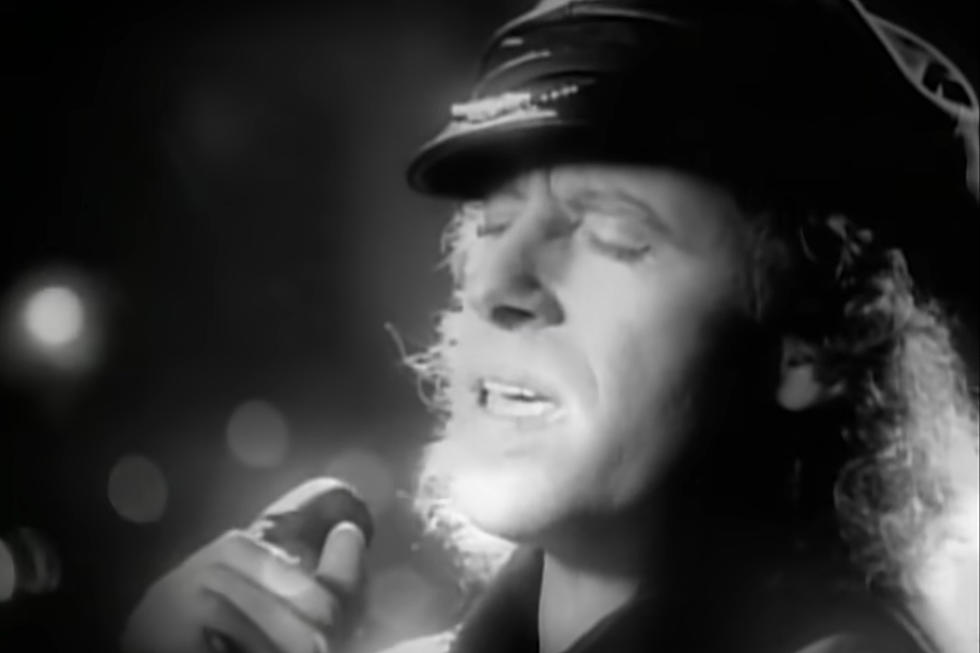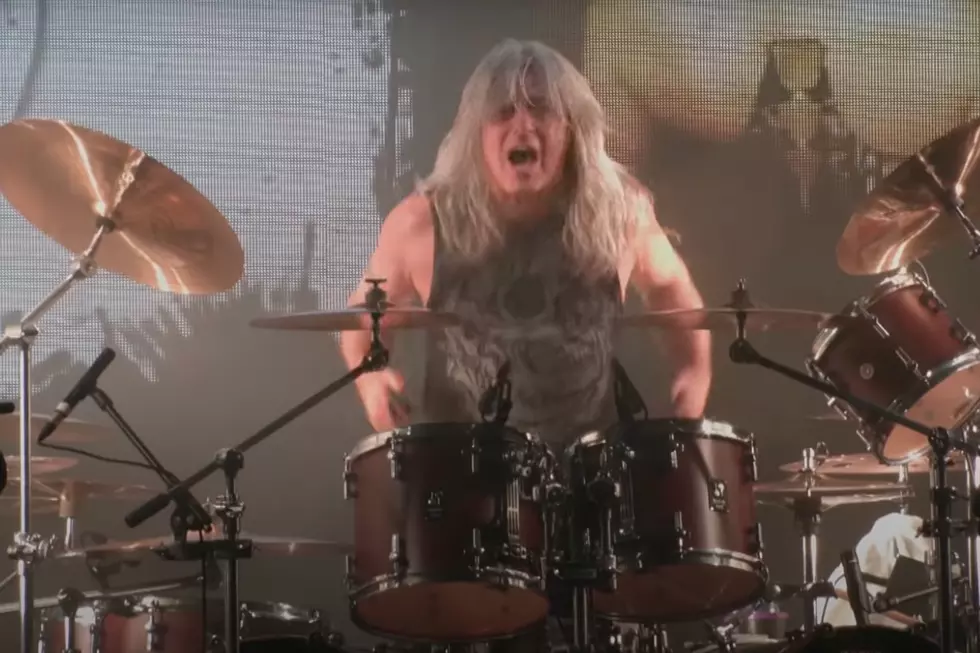
Why Scorpions Nearly Removed ‘Wind of Change’ Whistling
Scorpions’ 1991 hit “Wind of Change” will eternally be connected to the historic fall of the Berlin Wall. But the classic track was almost released without its distinctive whistling.
“Wind of Change” was the brainchild of singer Klaus Meine, who initially came up with the song’s tune during Scorpions’ 1989 performances in Russia.
“The second night that we played in Moscow, we were in the bus coming back from the gig, and Klaus was whistling 'Wind of Change,’” Scorpions’ former manager, Doc McGhee, recalled to Rolling Stone. “He had this idea in his head. And then the next day he pretty much had the whole song written.”
In 1990, the group began work on its 11th LP, Crazy World. It was then that Meine presented “Wind of Change” to his bandmates. “Up to this point, I very rarely wrote music," he said. "I focused more or less all those years on lyrics. But with 'Wind of Change,' I presented the whole song to the band."
“It raised the hairs on my arms,” admitted the album's producer, Keith Olsen. “I had a copy of the lyrics, and it was just, ‘Whoa.’ It was a very strong emotional statement. But it wasn’t a ya-ya-ya, rah-rah-rah political statement. It was so genuine.”
Watch Scorpions' 'Wind of Change' Video
Initially, Meine’s whistling was provided simply as a guideline.
“The beginning melody, I guess I just whistled my way through it because I play guitar, but I’m not a lead guitarist,” the singer explained. “So I was just whistling, and it went down pretty cool.” While the rest of the band “liked the song,” Meine said “they were not so sure about this whistling part.”
“We tried it with guitars, we tried it with clean guitars, we tried it on a keyboard,” Olsen noted, explaining the many ways the band tried to replicate the melody. “In the end, it was one of those things where it just worked with the whistle.” “We noticed immediately that when the whistling was out of the song, the song lost something,” added guitarist Rudolf Schenker.
Although the band was convinced to keep the whistling, its record label was not. “The record company came and said, “You know, guys, the song ‘Wind of Change,’ it’s great … but maybe you can cut the whistling out?'” Schenker recalled. “I remember that an A&R guy from Mercury Records in New York called me before that song was released in America,” Meine remembered in the book Wind of Change: The Scorpions Story, “and he said, ‘Klaus, I like that song a lot. But we have to take out that whistle. It won’t work in America.’”
“It was actually someone in my office who was talking to the record company, and the guys there were saying, 'They gotta get the whistling out,'” McGhee explained. “I went, ‘You’re crazy! You can’t get the whistling out.’ It was just as much of a hook as anything in the song.
“So we said, ‘Fuck it! We keep the whistling,’" Schenker proclaimed.
For his part, Meine never understood why there was such a debate about the whistling. “It worked perfectly,” the singer said, noting that artists such as John Lennon and Axl Rose had already used whistling in their songs.
The stylistic decision paid off for Scorpions. “Wind of Change” became a global phenomenon, topping the charts in countries all over Europe, including Germany, France, the Netherlands and Norway. In the U.S., it peaked at No. 4 and became the band’s biggest hit.
Scorpions Albums Ranked
More From Ultimate Classic Rock









